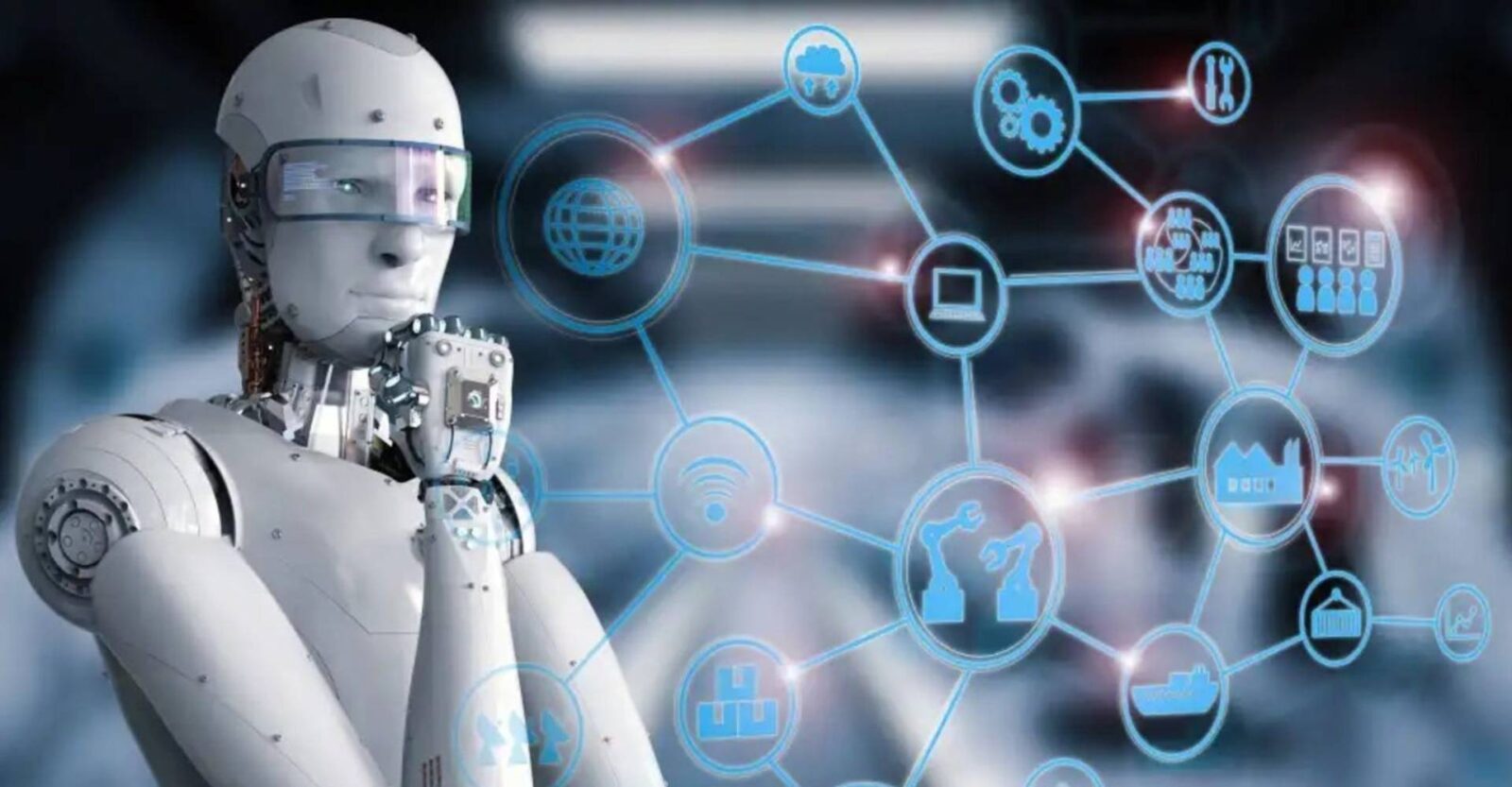Conversations about automation and artificial intelligence often bring up images from science fiction—robots taking over the world or super-smart computers making decisions for us. While we are not quite living in a sci-fi movie, AI and automation are already transforming the way we work. This shift isn’t just a distant possibility; it’s happening now, impacting industries and reshaping career paths across the globe.
Understanding this transformation is essential for everyone. For employees, it means recognizing how their roles might change and what skills will be valuable in the coming years. For businesses, it involves adapting strategies to stay competitive and support their workforce through this transition. For policymakers, it requires creating frameworks that address economic shifts and promote inclusive growth.
This post will explore how automation and AI are reshaping the economy. We will look at the technologies driving this change, their impact on different job sectors, the skills you’ll need for the future, and the challenges and opportunities that lie ahead. By understanding these dynamics, you can better prepare for the future of work.
The Rise of Automation and AI
Automation and artificial intelligence are no longer just concepts discussed in tech circles. They are practical tools being implemented across various industries to improve efficiency, accuracy, and productivity. AI has evolved from simple algorithms to complex systems capable of learning, reasoning, and problem-solving. Technologies like machine learning, natural language processing (NLP), and computer vision are becoming more sophisticated and accessible.
Across different sectors, these technologies are showing up in powerful ways.
- In manufacturing, robots are performing repetitive tasks with incredible precision, from assembling car parts to packaging consumer goods.
- In logistics, AI optimizes supply chains, predicting demand and managing inventory to reduce waste and delays.
- In finance, algorithms analyze market trends to inform investment strategies and detect fraudulent transactions.
- In healthcare, AI helps doctors diagnose diseases more accurately by analyzing medical images and patient data.
These applications demonstrate that AI and automation are not just replacing manual labor but also enhancing cognitive tasks. They can process vast amounts of data faster than any human, uncovering insights that lead to better business decisions and new opportunities for innovation.
How Different Job Sectors Are Changing
The impact of AI and automation varies significantly across different industries. Some sectors are experiencing major shifts, with certain jobs declining while new roles emerge.
Manufacturing and Logistics
The manufacturing sector has long been a user of automation, but modern AI is taking it to a new level. “Cobots,” or collaborative robots, now work alongside human employees, handling strenuous or dangerous tasks. In logistics, automated warehouses use robots to sort and move packages, while AI-powered software plans the most efficient delivery routes. While many routine assembly line and warehouse jobs are at risk, new roles are being created for robot technicians, automation specialists, and supply chain analysts who can manage these complex systems.
Customer Service
Chatbots and virtual assistants are becoming the first point of contact for many customers. These AI-powered tools can answer common questions, process orders, and resolve simple issues 24/7. This has reduced the need for a large number of entry-level customer service representatives. However, it has also created a demand for agents who can handle more complex, emotionally nuanced customer problems that AI cannot solve. There are also new jobs in designing and training these AI systems to ensure they provide a helpful and positive customer experience.
Healthcare
In healthcare, AI is augmenting the capabilities of medical professionals. AI algorithms can analyze X-rays, MRIs, and other medical images to detect signs of disease, sometimes with greater accuracy than the human eye. This doesn’t replace radiologists but instead provides them with a powerful tool to improve diagnostic speed and precision. New roles are emerging for healthcare data analysts, AI specialists who train medical algorithms, and telehealth coordinators who manage remote patient care.
While it’s true that jobs involving repetitive and predictable tasks are most vulnerable to automation, new opportunities are appearing. These new jobs often require a combination of technical skills and uniquely human abilities, such as creativity, critical thinking, and emotional intelligence.
The Skills You’ll Need for the Future
As the job market evolves, the skills in demand are also changing. To stay relevant and thrive in an automated economy, focusing on developing a specific set of abilities is crucial.
Essential Human Skills
While AI can handle data and routine tasks, it can’t replicate core human traits. These are becoming more valuable than ever.
- Critical Thinking and Problem-Solving: The ability to analyze complex situations, evaluate information from multiple sources, and devise effective solutions is a skill that AI cannot easily replicate.
- Creativity and Innovation: Coming up with new ideas, original concepts, and creative solutions will be a key differentiator in a world where routine tasks are automated.
- Emotional Intelligence: Skills like empathy, communication, collaboration, and leadership are fundamental to effective teamwork and managing human relationships—areas where AI falls short.
Technical and Digital Skills
Alongside these soft skills, technical proficiency is essential. This doesn’t mean everyone needs to become a coder, but a certain level of digital literacy is non-negotiable.
- Data Literacy: Understanding how to interpret data, identify trends, and use data-driven insights to make decisions is becoming a required skill in many roles.
- Digital Skills: Proficiency with digital tools, collaboration software, and platforms specific to your industry is expected.
- AI and Machine Learning Knowledge: A basic understanding of how AI and machine learning work can be a significant advantage, even in non-technical roles.
The most important mindset for the future of work is a commitment to continuous learning. The pace of technological change means that skills can become outdated quickly. Being adaptable and willing to learn new things throughout your career will be the key to long-term success. This can be achieved through formal education, online courses, professional certifications, or on-the-job training.
Challenges and Opportunities on the Horizon
The transition to an AI-driven economy presents both significant challenges and exciting opportunities. One of the primary concerns is job displacement. As automation takes over routine tasks, many workers may find their roles redundant, leading to potential unemployment and increased economic inequality if not managed properly. The gap between high-skilled workers who can leverage AI and low-skilled workers whose jobs are at risk could widen.
However, this disruption also creates opportunities to build a more inclusive and efficient economy. Automation can free humans from tedious and dangerous work, allowing them to focus on more creative and strategic tasks. This can lead to higher job satisfaction and productivity. There is also the potential to create entirely new industries and services that we can’t even imagine today.
Governments and businesses have a critical role to play in navigating this transition.
- Governments can implement policies that support displaced workers, such as funding for retraining programs, strengthening social safety nets, and investing in education that prepares students for the jobs of the future.
- Businesses can take a proactive approach by investing in their workforce. Instead of simply replacing employees with technology, companies can retrain and upskill their staff to take on new roles that complement automation.
Embracing the Future of Work
The future of jobs is not about humans versus machines. It is about how we can work alongside technology to achieve more. By understanding the changes underway and proactively developing the right skills, we can all prepare for a future where automation and AI enhance our work and create new opportunities. The key is to remain adaptable, embrace continuous learning, and focus on developing the uniquely human skills that technology cannot replace.
Frequently Asked Questions
Which jobs are most at risk from automation?
Jobs that involve highly repetitive, predictable tasks are most at risk. This includes roles in data entry, assembly line work, and some entry-level customer service positions. However, even some tasks within professional roles, like paralegal work or basic accounting, can be automated.
Will AI create more jobs than it destroys?
This is a topic of much debate among economists. Historically, technological revolutions have ultimately created more jobs than they eliminated, though often after a painful transition period. AI is expected to create new roles in areas like data analysis, AI development, robot maintenance, and jobs that require a high degree of creativity and emotional intelligence.
How can I prepare for the future of work?
Focus on developing a combination of uniquely human skills (like critical thinking, creativity, and emotional intelligence) and technical skills (like data literacy). Most importantly, commit to lifelong learning. Be open to acquiring new skills and adapting to new technologies throughout your career.
Paving the Way Forward
The integration of AI and automation is reshaping our economy in profound ways. This evolution presents both challenges and opportunities, but it is not a future to be feared. Instead, it is one to prepare for. By focusing on continuous learning, developing both our technical and human skills, and fostering an adaptable mindset, we can successfully navigate the changing job market. The future of work will be defined by our ability to collaborate with technology, unlocking new levels of productivity and innovation for years to come.







Leave a Reply